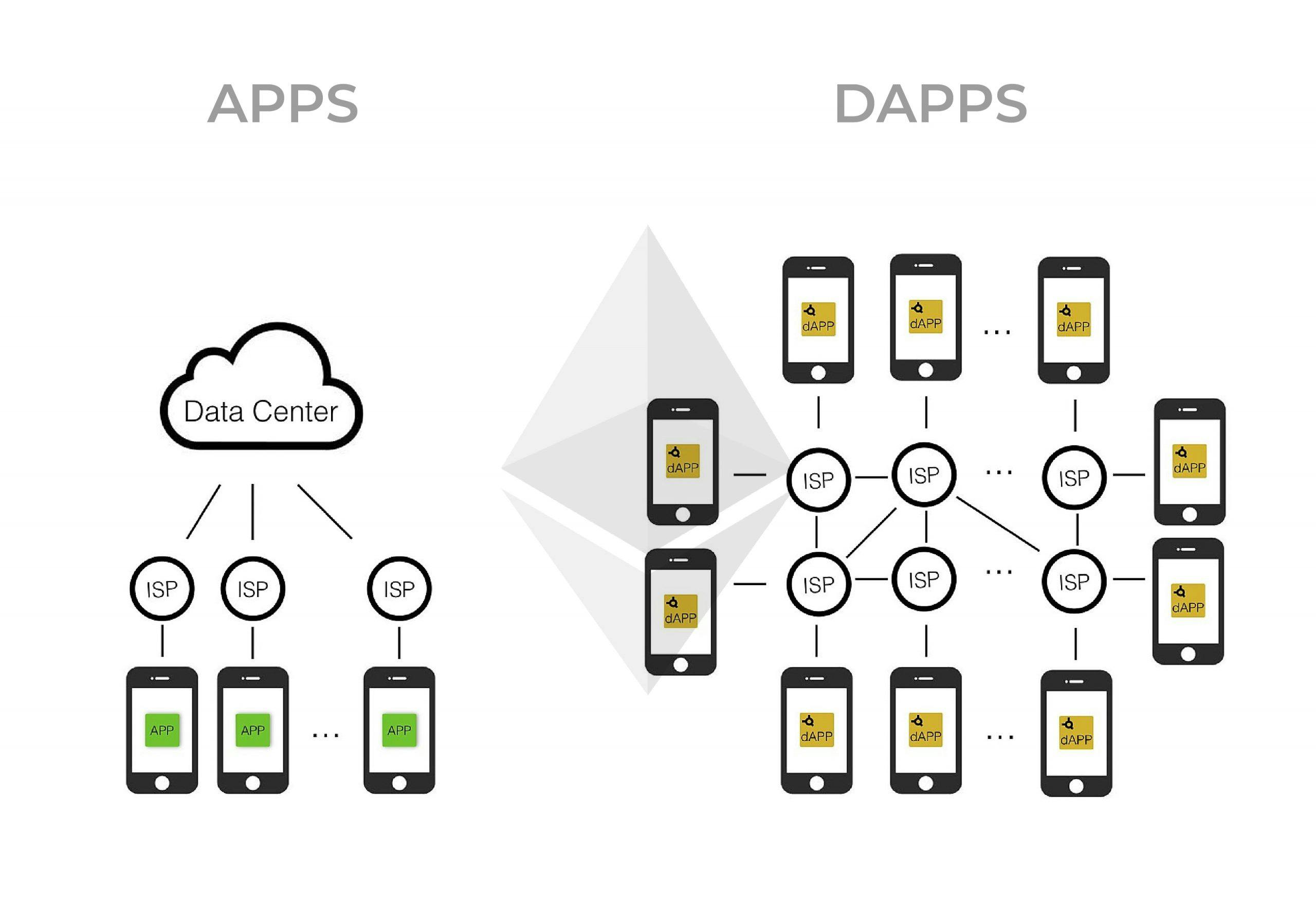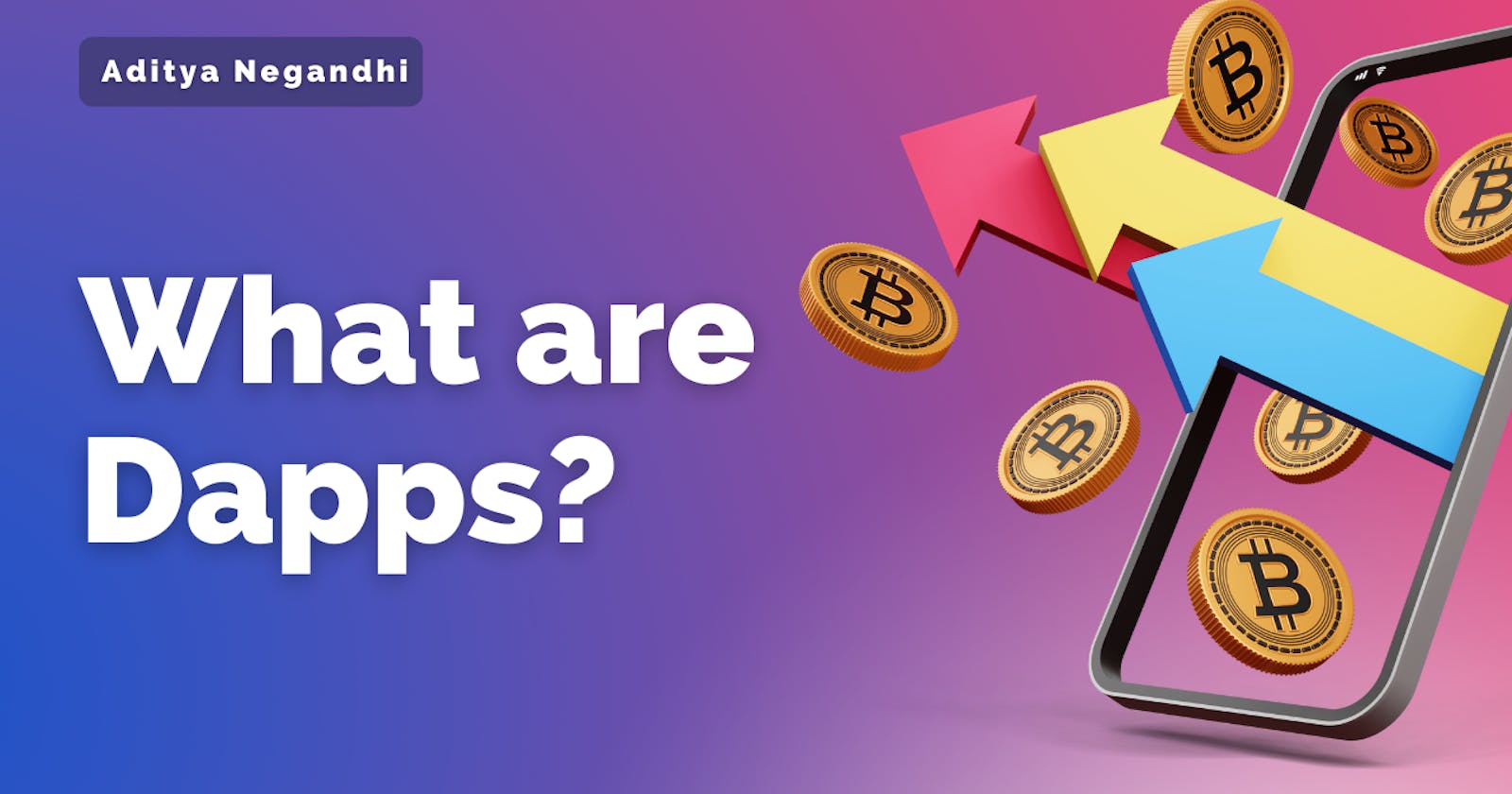Table of contents
No headings in the article.
A decentralized application (dapp) is an application built on a decentralized network that combines a smart contract and a frontend user interface. A dapp has its backend code running on a decentralized peer-to-peer network compared with a centralized app where the backend code is running on centralized servers.
In order to understand what dapps are and how do they differ from the normal (Centralized) applications that we use daily on our phones, we need to understand that the only difference between them which is how the data is stored? and who owns the code?
In centralized applications such as Instagram for example, all our data is stored on centralized servers of Facebook (now Meta) which they are infamous to use for showing us annoying ads. Moreover, the algorithms to recommend content (based on our interests and other personal data taken by the company) are proprietary which means we have no control over what kind of data is being collected by the apps.
As the ownership of the platform and data is centralized, problems like Privacy, Censorship, Downtime, Trustworthiness of the platform, etc. are the factors that get questionable as time passes and the platform becomes bigger and stronger.
On the other hand, a dapp can have frontend code and user interfaces written in any language (just like an app) to make calls to its backend. Furthermore, its frontend can get hosted on decentralized storage such as IPFS. To introduce dapps, we need to introduce smart contracts — a dapp’s backend for lack of a better term.
A smart contract is a code that lives on the blockchain and runs exactly as programmed. Once smart contracts are deployed on the network you can’t change them. Dapps can be decentralized because they are controlled by the logic written into the contract, not an individual or company. This also means you need to design your contracts very carefully and test them thoroughly.

As the data within the dapp is on a blockchain (decentralized) which means that all the problems that we are currently facing in the centralized platform can be solved by dapps.
- dapps have Zero Downtime as they are running on the network of millions of computers.
- In dapps you don’t need to provide a real-world identity to interact with it which is great for privacy.
- In dapps, no single entity on the network can block users from submitting transactions, deploying dapps, or reading data from the blockchain which provides resistance to censorship.
- In dapps, smart contracts can be analyzed and are guaranteed to execute in predictable ways, without the need to trust a central authority.
To conclude, we saw how the centralized and decentralized apps function and what are the problems caused by the centralized apps that can be solved by dapps. Moreover, dapps provide more control to the end-users rather than the companies, making the platform decentralized in the true sense.
